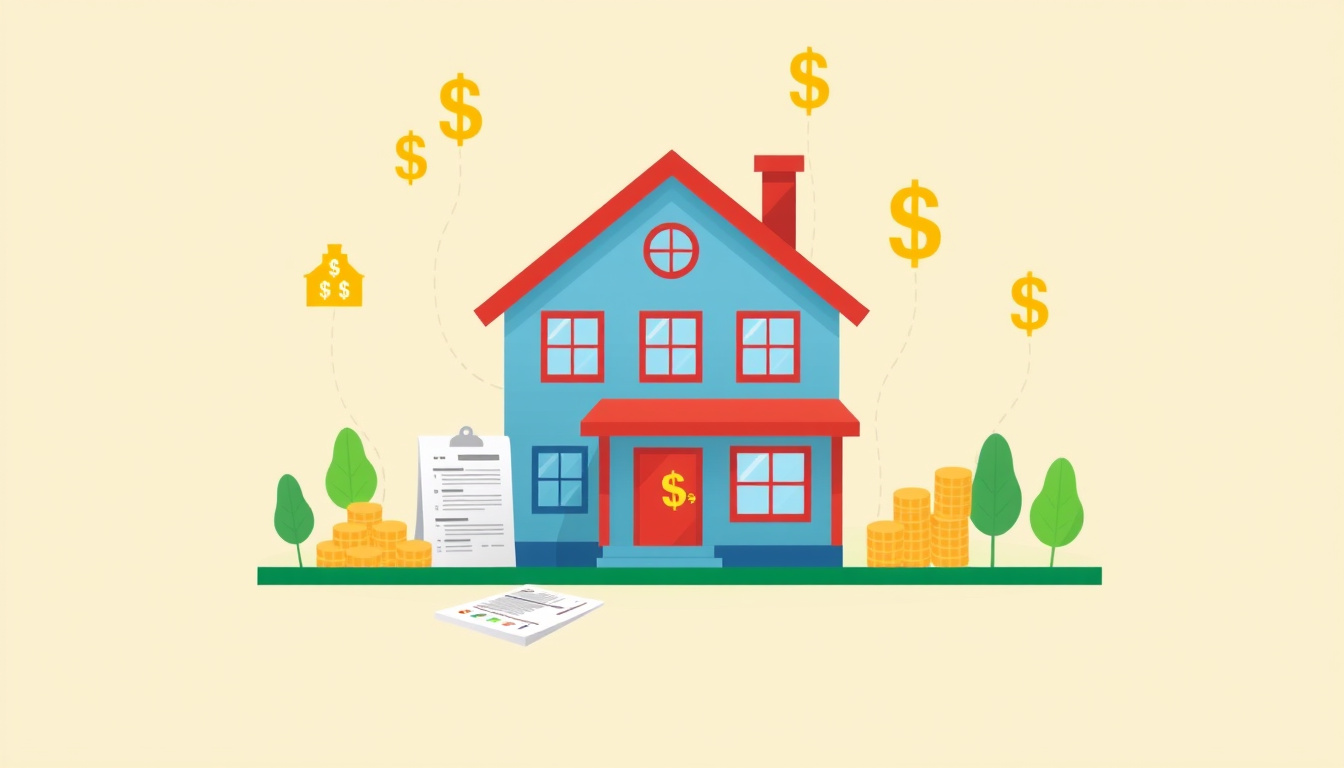When you own a home, knowing property taxes helps you manage your money. Tax rules touch your budget if you do not know how they work or ways to lower them. In this guide, we explain all you need to know about property taxes. We cover what they are, how they are computed, frequent errors, and real advice to save cash.
What Are Property Taxes?
Property taxes are local fees set on real estate by your town or county. They pay for public functions like schools, police and fire services, road upkeep, and parks. The tax amount comes from the estimated value of your property, which covers both land and any buildings.
Taxes show up each year, though many people pay as part of their monthly mortgage. Knowing how local groups set and collect the tax is the first step to control your costs.
How Are Property Taxes Calculated?
The steps may change by area, yet most follow these parts:
- Tax assessors set your property’s market value using recent sales, market trends, or a professional check.
- Some places use a percentage of the market value to get the assessed value.
- Your local group sets the tax rate in mills (one mill = $1 per $1,000 of the assessed value).
- Multiply the assessed value by the rate to get the yearly tax.
For example, let your home be worth $250,000. With an 80% ratio and a rate of 20 mills, you do:
$250,000 x 0.80 = $200,000 (assessed value)
$200,000 x 0.020 = $4,000 (yearly tax)
Why Are Property Taxes Important for Homeowners?
Tax payments support public services and affect what you pay to own your home. A surprise tax jump can stress your budget, so staying alert is key.
Property taxes can also cut your federal income taxes under some rules. Check your situation or ask a tax expert to learn more.
Common Mistakes Homeowners Make with Property Taxes
– Skipping a Look at the Assessment: Many accept the given assessment and miss wrong details or too high values.
– Missing Changes in the Tax Rate: Rates can rise when budgets change or bonds are set, so your bill might go up.
– Overlooking Exemptions: Some groups get lower taxes for age, disability, or military work.
– Forgetting to Appeal on Time: If you see that your property is valued too high, you must act fast so you can challenge it.
Top Tips to Save Money on Property Taxes
Cutting your tax costs needs clear steps. Here are some practical tips:
1. Understand Your Property Assessment
Confirm that the value in your record matches the market. Ask for your current assessment. A wrong description or old value may lift your tax.
2. Apply for Tax Exemptions or Relief Programs
Many places grant breaks such as:
• Seniors
• Veterans
• Persons with disabilities
• Home-use exemptions
Visit your local tax office to see if you can join these programs and send in your forms on time.
3. Challenge Your Property Tax Assessment
If the value is too high, file a challenge. Get nearby sales data, fresh appraisals, or photos for proof. Check local rules so you know the deadlines and needed documents.

4. Stay Informed About Local Budget and Tax Rate Changes
Go to town meetings or read public announcements on budgets. Knowing how rates are fixed and why they rise helps you plan and speak up when needed.
5. Keep Your Property Records Updated
Save details of home improvements or damages. For example, a roof that needs repair may lower your home’s worth and your tax.
6. Think About When to Buy or Sell
Taxes often share costs when you change owners. Learn how these payments work at closing so you avoid extra fees.
Frequently Asked Questions (FAQs)
1. What exactly are property taxes, and why must I pay them?
Property taxes are local fees based on your property’s value. They help pay for public services like schools and emergency help, which support the community and your property’s value.
2. How can I lower my property tax bill?
You may lower the tax by applying for breaks, challenging a high assessment, and staying aware of local tax rates and budgets.
3. Are property taxes deductible on my income taxes?
Often, taxes on your main home can be deducted on your federal return. Rules apply, so check with a tax expert or the IRS website.
Conclusion: Take Control of Your Property Taxes Today
Being alert about your property taxes brings money savings and less stress over time. Do not let an unexpected tax bill shake your finances. Check your numbers, get any available tax breaks, and challenge if your value is too high. Tracking local decisions and changes gives you a strong position.
For more help with property taxes, visit the National Association of Realtors for current news and resources.
Start managing your property taxes well today—your wallet will thank you tomorrow!
https://findapropertyegypt.com/contact-us/

